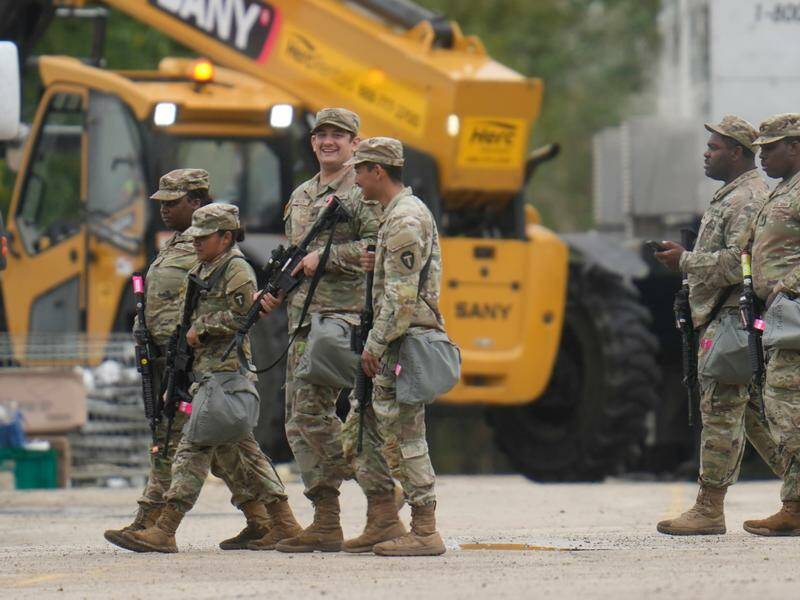
In a crucial legal proceeding, a US District Court is set to review President Donald Trump‘s recent deployment of National Guard troops in Illinois. This comes just as a small contingent of troops began operations in the Chicago area to safeguard federal sites, including US Immigration and Customs Enforcement (ICE) facilities.
The hearing, presided over by Judge April Perry, will focus on a request from Illinois Governor JB Pritzker and local officials seeking to block the deployment of approximately 500 National Guard members from Illinois and Texas. Pritzker and other local leaders have expressed strong opposition to the use of the National Guard, arguing that the deployment is both unnecessary and illegal.
Details of the Deployment
According to a spokesperson from US Northern Command, a portion of the 200 Texas National Guard troops sent to Illinois began their duties in Chicago on Wednesday. These troops joined approximately 300 Illinois National Guard members, all of whom have been activated for a duration of 60 days. Their primary mission is to protect federal facilities and law enforcement personnel amidst ongoing civil unrest.
The deployment was met with immediate backlash, prompting Chicago and Illinois to file a lawsuit on Monday. The lawsuit contends that the protests at a temporary ICE detention facility in the Chicago suburb of Broadview have not impeded federal immigration enforcement and thus do not justify military involvement. The filing states, “The President is using the Broadview protests as a pretext,” asserting that the troop deployment is part of a broader strategy to target areas the President disapproves of.
Response from Local Leaders and Legal Context
Trump has criticized local Democratic leaders, including Chicago Mayor Brandon Johnson and Pritzker, suggesting they should face imprisonment for failing to adequately protect federal agents during immigration enforcement operations. This rhetoric comes as tensions escalate over the presence of federal troops in urban areas.
On the national stage, a panel of judges from the 9th US Circuit Court of Appeals is also considering whether Trump has the authority to deploy 200 Oregon National Guard troops to Portland, where protests have occurred outside an ICE facility. Local leaders in Oregon and California have similarly opposed troop deployment, and Judge Karin J Immergut granted a temporary restraining order against this action, citing a lack of justification for military presence.
The legal framework governing these actions includes the nearly 150-year-old Posse Comitatus Act, which limits military involvement in domestic law enforcement. Nonetheless, Trump has indicated a willingness to invoke the Insurrection Act, which permits the use of active duty military in states that are unable to control civil unrest or are in violation of federal law.
Historically, Trump has mobilized troops in various cities, including Los Angeles and Washington, and recently dispatched a small number to assist law enforcement in Memphis, Tennessee. In contrast to the opposition faced in other states, Tennessee’s Republican Governor Bill Lee has expressed support for the deployment of National Guard troops to combat crime.
The outcome of these legal challenges will likely have significant implications for federal troop deployments in urban areas and the balance of power between state and federal authorities in matters of public safety and law enforcement.







